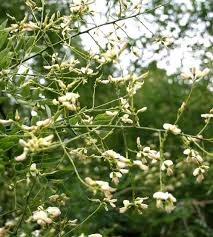
Rosa Gallica, with its timeless beauty and historical significance, thrives when provided with adequate nutrients to support its growth and blooming cycles. Organic fertilizers offer a natural and sustainable approach to nourishing Rosa Gallica plants, providing essential nutrients while promoting soil health and microbial activity. In this section, we will explore the benefits of using organic fertilizers for Rosa Gallica cultivation and discuss various types of organic fertilizers suitable for enhancing the health and vitality of these iconic roses.
#### Benefits of Organic Fertilizers:
1. **Nutrient-Rich Soil:** Organic fertilizers contain a balanced blend of essential nutrients, including nitrogen (N), phosphorus (P), potassium (K), and micronutrients, derived from natural sources such as compost, manure, and plant-based materials. These nutrients support healthy growth, strong root development, and vibrant blooms in Rosa Gallica plants.
2. **Slow-Release Nutrients:** Unlike synthetic fertilizers, which often deliver nutrients in a quick-release form, organic fertilizers release nutrients slowly over time as they decompose, providing a steady and long-lasting supply of nutrients to Rosa Gallica plants. This gradual release helps prevent nutrient leaching and minimizes the risk of nutrient imbalances or toxicity.
3. **Soil Health:** Organic fertilizers improve soil structure, texture, and fertility by enhancing soil organic matter content and promoting beneficial microbial activity. Healthy soil is vital for optimal root growth, nutrient uptake, and overall plant health in Rosa Gallica, ensuring robust growth and abundant flowering throughout the growing season.
4. **Environmentally Friendly:** Organic fertilizers are derived from renewable and sustainable sources, making them environmentally friendly alternatives to synthetic fertilizers. They minimize the risk of chemical runoff and groundwater contamination, reduce greenhouse gas emissions, and support biodiversity and ecosystem health in the garden.
#### Types of Organic Fertilizers:
1. **Compost:** Compost is a nutrient-rich soil amendment made from decomposed organic matter such as kitchen scraps, yard waste, and plant materials. Incorporating compost into the soil improves soil structure, fertility, and moisture retention while providing a balanced supply of nutrients for Rosa Gallica plants.
2. **Manure:** Well-aged animal manure, such as cow, horse, or poultry manure, is an excellent source of nitrogen, phosphorus, and potassium for Rosa Gallica. Manure adds organic matter to the soil, enhances microbial activity, and releases nutrients gradually as it decomposes, promoting healthy growth and flowering.
3. **Bone Meal:** Bone meal is a natural fertilizer made from ground animal bones and is high in phosphorus, an essential nutrient for root development, flower formation, and overall plant vigor in Rosa Gallica. Bone meal releases phosphorus slowly over time, providing long-term benefits to the soil and plants.
4. **Fish Emulsion:** Fish emulsion is a liquid organic fertilizer made from processed fish byproducts and is rich in nitrogen and micronutrients. It provides a quick source of nutrients for Rosa Gallica plants and improves soil fertility and microbial activity when applied as a foliar spray or soil drench.
5. **Seaweed Extract:** Seaweed extract is derived from seaweed or kelp and contains a wide range of beneficial nutrients, trace minerals, and plant hormones that promote root growth, flowering, and stress tolerance in Rosa Gallica. Seaweed extract can be applied as a foliar spray or soil amendment to enhance plant health and resilience.
#### Conclusion:
Organic fertilizers offer numerous benefits for cultivating Rosa Gallica, providing a natural and sustainable approach to nourishing these iconic roses while promoting soil health and environmental sustainability. Whether using compost, manure, bone meal, fish emulsion, or seaweed extract, organic fertilizers supply essential nutrients, improve soil structure, and support microbial activity, resulting in healthy, vibrant Rosa Gallica plants with abundant blooms and lasting beauty. By incorporating organic fertilizers into Rosa Gallica cultivation practices, gardeners can cultivate thriving roses while minimizing environmental impact and fostering a more sustainable and resilient garden ecosystem.
### Rosa Gallica and Organic Fertilizers: Utilizing Organic Fertilizers for Rosa Gallica (Continued)
In the previous section, we explored the benefits of using organic fertilizers for cultivating Rosa Gallica, highlighting their nutrient-rich composition, slow-release properties, soil health benefits, and environmental sustainability. Now, let’s delve deeper into the various types of organic fertilizers available and their specific applications for nurturing Rosa Gallica plants to their full potential.
#### More Types of Organic Fertilizers:
6. **Blood Meal:** Blood meal is a natural fertilizer made from dried blood, typically from cattle, and is a rich source of nitrogen, which is essential for lush foliage and vigorous growth in Rosa Gallica. Blood meal releases nitrogen gradually as it decomposes, providing a steady supply of nutrients to support healthy plant development.
7. **Worm Castings:** Worm castings, also known as vermicompost, are organic fertilizers produced by earthworms digesting organic matter. Worm castings are nutrient-rich, containing a balanced blend of nitrogen, phosphorus, potassium, and beneficial microorganisms. They improve soil structure, enhance nutrient availability, and stimulate root growth in Rosa Gallica plants.
8. **Alfalfa Meal:** Alfalfa meal is a natural fertilizer made from dried alfalfa plants and is rich in nitrogen, phosphorus, potassium, and other essential nutrients. It promotes vigorous growth, improves soil fertility, and enhances disease resistance in Rosa Gallica. Alfalfa meal also contains natural growth hormones that stimulate plant growth and flowering.
9. **Bat Guano:** Bat guano is a natural fertilizer derived from bat excrement and is prized for its high nitrogen, phosphorus, and potassium content. It provides a potent source of nutrients for Rosa Gallica plants and promotes robust growth, abundant flowering, and increased resistance to pests and diseases. Bat guano is available in both liquid and granular forms for easy application.
10. **Green Manure Cover Crops:** Green manure cover crops, such as clover, vetch, or winter rye, are planted in Rosa Gallica beds during the off-season and then turned into the soil to improve soil fertility and structure. These cover crops add organic matter, fix nitrogen from the atmosphere, suppress weeds, and prevent soil erosion, creating an optimal growing environment for Rosa Gallica when incorporated into the soil.
#### Application of Organic Fertilizers:
1. **Soil Amendment:** Organic fertilizers can be incorporated into the soil before planting Rosa Gallica or as a top dressing around established plants. Mixing organic fertilizers into the soil improves soil fertility, enhances nutrient availability, and provides a sustained source of nutrients for Rosa Gallica throughout the growing season.
2. **Foliar Feeding:** Liquid organic fertilizers, such as fish emulsion or seaweed extract, can be diluted and applied as a foliar spray to the leaves of Rosa Gallica plants. Foliar feeding delivers nutrients directly to the plant’s foliage, allowing for rapid absorption and utilization, especially during periods of rapid growth or flowering.
3. **Mulching:** Organic materials, such as compost, shredded leaves, or straw, can be applied as a mulch around Rosa Gallica plants to conserve soil moisture, suppress weeds, and slowly release nutrients as they decompose. Mulching with organic materials enriches the soil, improves moisture retention, and creates a favorable microclimate for root development and nutrient uptake.
#### Conclusion:
Organic fertilizers offer a diverse array of options for nourishing Rosa Gallica plants naturally and sustainably, providing essential nutrients, improving soil health, and enhancing plant growth and flowering. Whether using compost, manure, bone meal, fish emulsion, seaweed extract, blood meal, worm castings, alfalfa meal, bat guano, or green manure cover crops, organic fertilizers support the health and vitality of Rosa Gallica while minimizing environmental impact and promoting soil sustainability. By incorporating organic fertilizers into Rosa Gallica cultivation practices, gardeners can cultivate resilient, beautiful roses while fostering a more sustainable and eco-friendly gardening approach.










